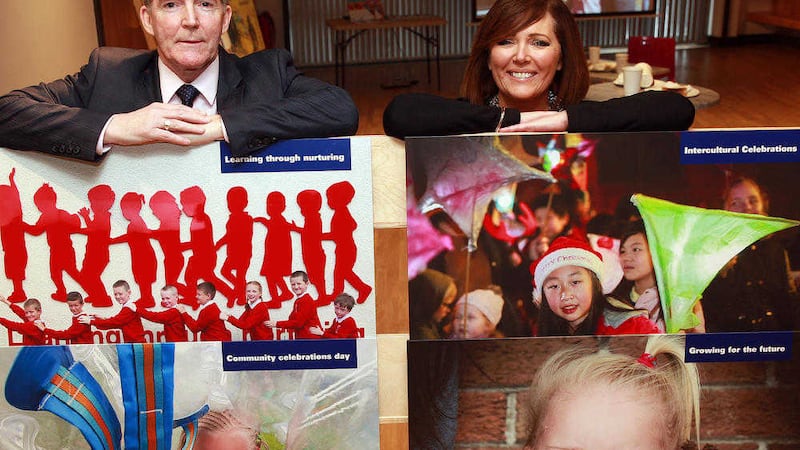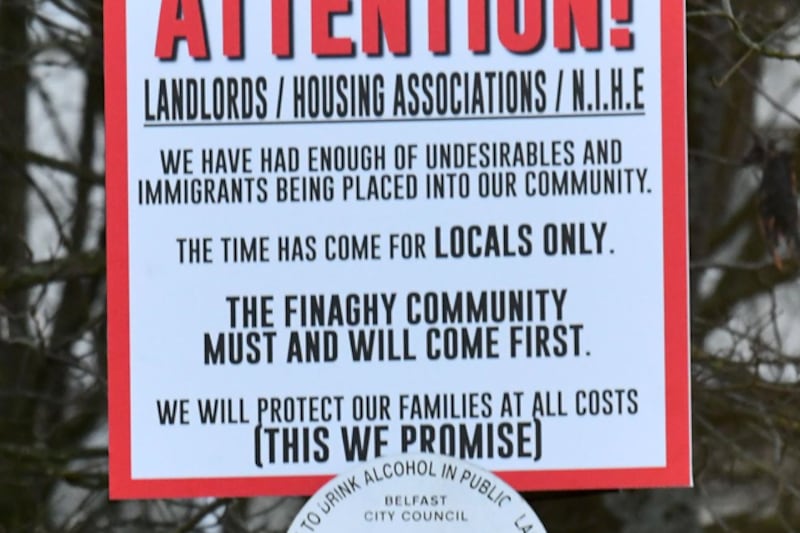Almost two decades after the signing of the Good Friday Agreement, more than 90 per cent of social housing in Northern Ireland remains segregated on grounds of religious background.
And that figure rises to 94 per cent in Belfast, the Housing Executive revealed yesterday.
Launching a strategy to help improve relations between communities and reverse the trend, it said 80 per cent of people questioned said they would live in shared housing if the circumstances were right.
The Community Cohesion strategy will deal not just with trying to integrate nationalist and unionist communities but also the growing number of people of different backgrounds who have set up home in Northern Ireland.
Race attacks reported to police in the north have risen by 30 per cent since 2013, creating an entirely new set of challenges.
Gerry Flynn, director of landlord services for the executive, said while responsibility for overseeing the allocation of housing based on need is the still its main purpose, it is also at the forefront of dealing with cases of people being made homeless through sectarian and racial intimidation.
He said staff are often called on in emergencies by people "who need help and need help there and then".
The executive is also responsible for repairing riot damage to both social and private housing and has been involved in mural 'reimaging' and work around bonfire management, flags and kerb painting in interface communities.
There are almost 80 peace walls in Northern Ireland, with 21 of them the property of the executive.
"Most people want to live in shared communities," Mr Flynn said.
"Good relations is not a new concept to the Housing Executive and we have a wealth of experience a dealing with these issues at a local level. This strategy is about developing and using that experience".
The 2012 flags dispute brought to an end the 'protocol' that managed the flying of flags to specific times of the year and moved paramilitary flags away from interfaces.
The new strategy notes that while most flags are not flown from Housing Executive properties, "we have produced a good practice guide for dealing with flags and sectarian symbols".
It says they will be working to promote "more acceptable expressions of cultural identity".
Jennifer Hawthorne, head of communities at the Housing Executive, said: "Our purpose is to facilitate and help those communities towards the creation of vibrant neighbourhoods.
"The Housing Executive’s vision is one in which housing plays its part in creating a peaceful, inclusive, prosperous and fair society. All of our work will be underpinned by our values of making a difference through passion, fairness and expertise.
"We want to make Northern Ireland a better place to live, work, socialise and do business in.”







